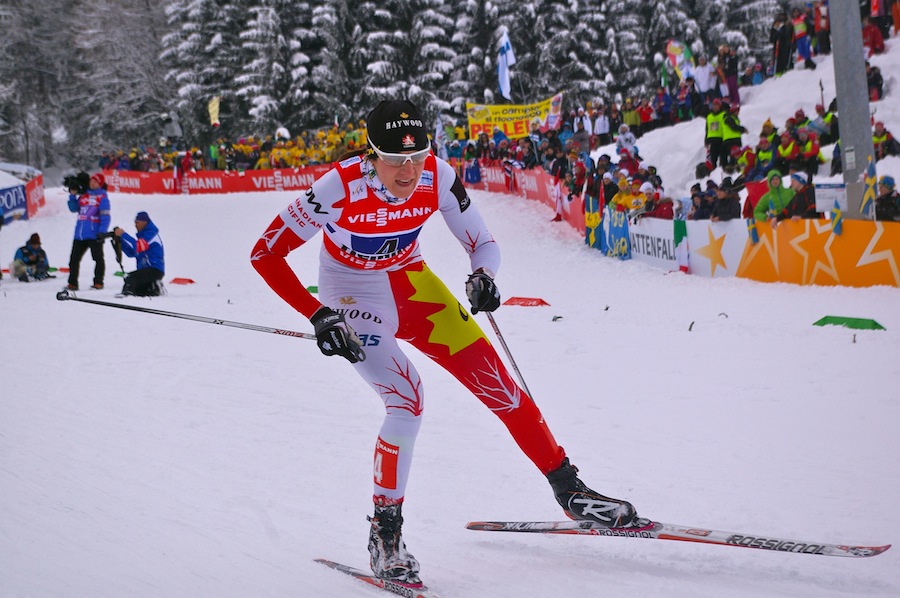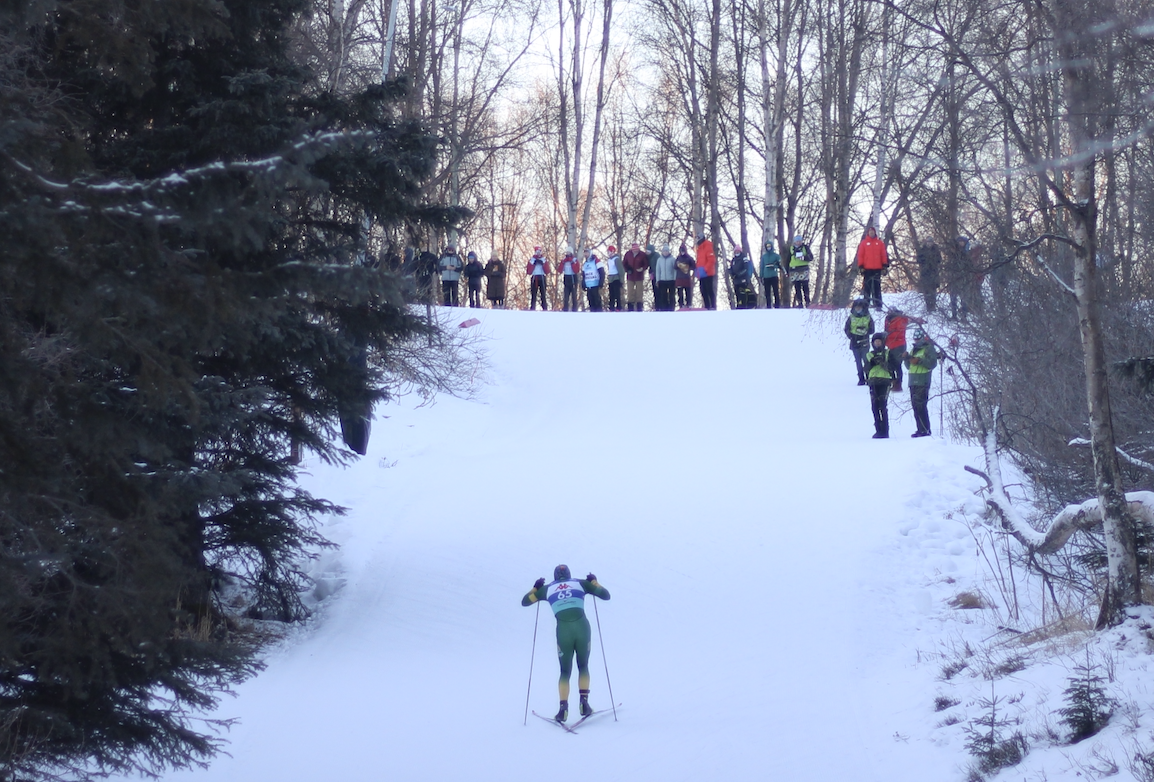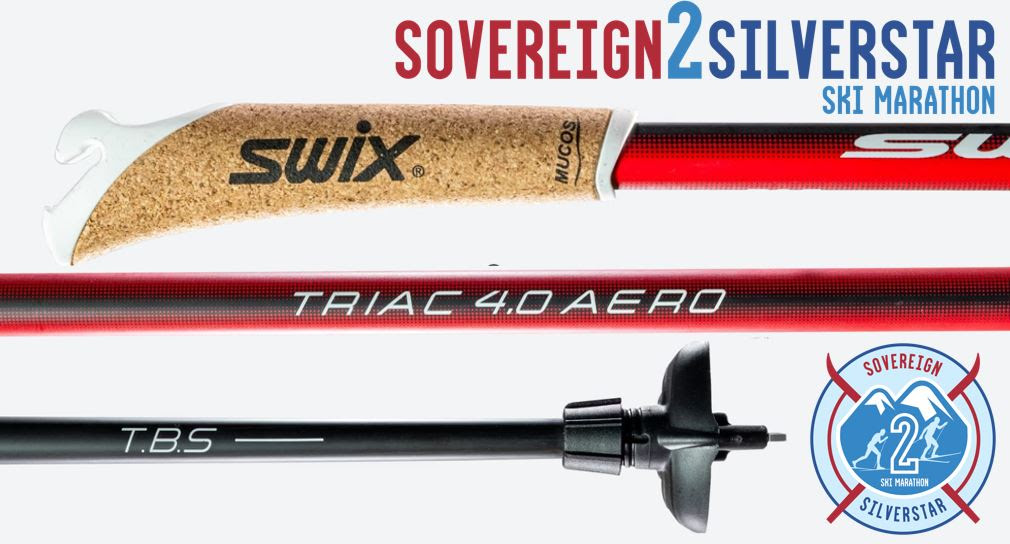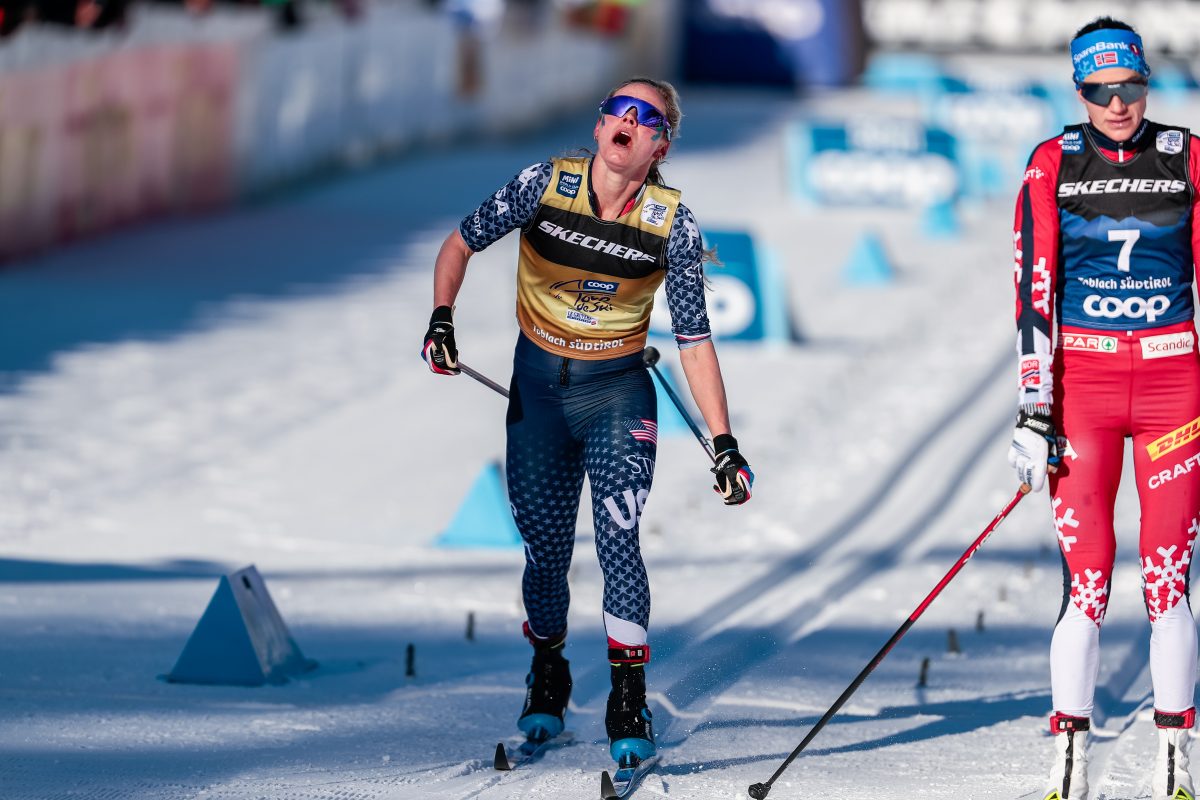
DAVOS, Switzerland – After Dasha Gaiazova finished the 1.5 kilometer freestyle World Cup sprint qualifier on Sunday, she hovered at the finish line. In bib 29, she ranked 24th when she crossed the line. But a few minutes later, more racers had finished their qualifying laps and Gaiazova was bumped out of the top 30. Without making the quarterfinals scheduled for a few hours later, her day was over.
And so it went for the Canadian national team. One by one, they learned that they just weren’t fast enough on this particular day.
“None of us are in,” said Devon Kershaw, one of the last team members to go through qualifying. “It’s inexcusable. If you’re not top 30, it doesn’t matter if you’re last or you’re 31st … I’m really disappointed none of the other guys got in.”
Gaiazova ended up 42nd and Chandra Crawford 43rd on the women’s side, while Alex Harvey led the men in 45th place. Lenny Valjas placed 61st, Kershaw 69th, and Jesse Cockney 82nd.
“I didn’t feel that bad, but I skied like a bag of shit,” Kershaw said. “It didn’t feel good, but it didn’t feel as bad as it was.”
For some members of the team, like himself and Gaiazova, it was unclear exactly what had gone wrong. (“You just go as fast as you can,” Gaiazova shrugged of pacing in the qualifier.)
But for others, it was not necessarily a surprise – for instane, Chandra Crawford and Lenny Valjas, who are coming back from tough off-seasons and want to know first and foremost how they stack up.
Valjas had knee surgery this summer to address some nagging problems that had prevented him from doing any real leg strength for several years. He lost weeks and weeks of training when recovery didn’t go as well as planned, but now he has at least made it back on the circuit.
“The knee is getting a little better,” he said. “It’s still a problem, but right now it’s the shape more than that. Taking 18 weeks or whatever off. I can’t do anything out here. I’m trying my hardest and not going fast. I’m missing – the effort is there, I’m just missing a little bit of speed.”
He hopes that next weekend’s sprint in Asiago, Italy, will go better – it’s classic, which he favors. In the opening sprint of the season in Kuusamo, Finland, he was 39th. Again, not in the heats, but at least closer than he was in Davos.
“So far, I don’t notice that I’m making progress, but I’m sure that I am,” he said. “I’m finally able to do some intensity. These races have to help the shape.”
Despite technically being Olympic qualified, Crawford is also on the comeback trail. She ended her season early and then controversially left the national team this off-season. (Since then, Canadian coaches said they needed to see her race before they’d commit to taking her to the Olympics.) Things got more complicated when she discovered a thyroid problem and low iron levels.
She started the season in Scandinavia, competing in FIS skate sprints. The Davos World Cup is her first race back on the circuit.
“Goals for today, just to see where I’m at in the world,” she explained. “I’ve done three warmup races, I’ve got my health under control, it’s solid, I feel happy and great. So I wanted to see where I would rank. I’m making gains every weekend using benchmarks like Hanna Falk and Dasha. I was keen to see if I could improve my time behind again, and make gains every week.”
Finishing 0.14 seconds behind Gaiazova, she has caught up – even if her fellow Canadian wasn’t psyched with her own race.
“It’s 60 days now until the Sochi race, so I’m spending each of those days getting closer to Sochi,” Crawford said. “And today is a great day to get closer to my Sochi goal of being fit and fast and ready, no matter how it goes. It can go bad like this, or it can go really well, it’s still a useful day.”
As was clear to everyone on the Canadian team, though, improving so that they have their best Olympics ever might not be a straightforward process. They know they have their work cut out for them.
“We were bad today,” coach Eric de Nys said in a tersely-worded Cross Country Canada press release. “There is no excuses and no two ways about it, but it was not for lack of trying and the team skiing their butts off.”
In Crawford’s case, the pain it will take to get that gain is quite literal.
“I feel like I just did 300 burpees and tuck jumps in a row,” she lamented at the finish line. “I’m in so much pain.”
Chelsea Little
Chelsea Little is FasterSkier's Editor-At-Large. A former racer at Ford Sayre, Dartmouth College and the Craftsbury Green Racing Project, she is a PhD candidate in aquatic ecology in the @Altermatt_lab at Eawag, the Swiss Federal Institute of Aquatic Science and Technology in Zurich, Switzerland. You can follow her on twitter @ChelskiLittle.



